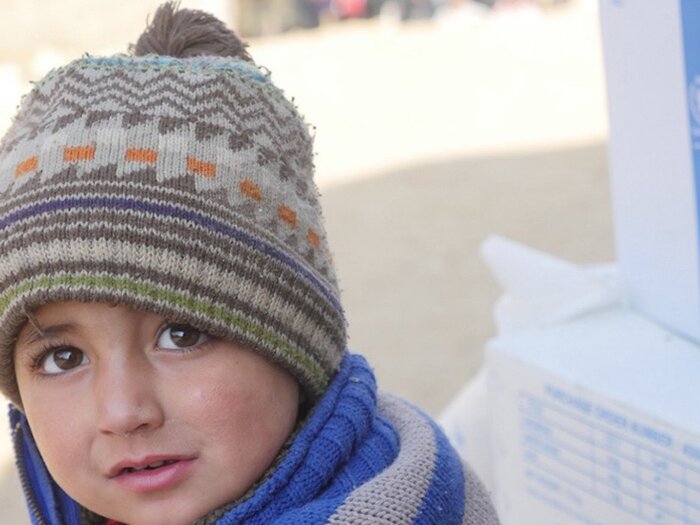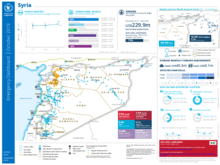Emergency
Syria
- 12.9 million
- people are food insecure
- 2.6 million
- people are at risk of hunger
- 6.7 million
- people are internally displaced
The global humanitarian funding crunch has forced WFP to end the food assistance programme, which had served Syrian families nationwide for over a decade.
Despite this, WFP will continue other programmes including school meals, nutrition, livelihoods and early recovery. WFP will also respond to emergencies across the country, through smaller and more targeted emergency response.
Syria remains among the ten countries with the highest number of hungry people globally. The World Food Programme (WFP) estimates that 12.9 million Syrians – more than half the population – are in the grip of hunger in 2024. Another 2.6 million are at risk of becoming food insecure.
The protracted conflict, in conjunction with record levels of inflation, a weakened domestic food system and continued sporadic shocks such as the disastrous earthquakes in February 2023, have exacerbated the brutal socioeconomic conditions.
While humanitarian aid remains vital, it is insufficient to meet the country’s increasing needs. Long-standing issues such as widespread destruction, collapse of national safety nets and shortage of resources require urgent attention and interventions that can prevent a worsening of the situation. This is especially vital as humanitarian assistance is reduced.
WFP Syria needs US$471million from January 2023 to June 2024, to ensure assistance to the most vulnerable people.
What the World Food Programme is doing to respond to the Syria emergency
-
Food assistance
-
The end of the food-assistance programme will affect the 3.2 million people who continued to receive this support after July 2023, when WFP had to reduce its caseload from 5.5 million – also because of funding shortfalls. All other programmes of WFP, including school meals, nutrition prevention and treatment, and early recovery, continue at similar levels.
-
Nutrition
-
WFP’s nutrition programme helps children get the best possible start in life and supports pregnant and nursing mothers in fighting and preventing malnutrition. WFP currently supports over 300,000 pregnant and nursing women and girls, and children aged between 6 months and 2 years, to access nutrient-rich foods and improve their diets across all 14 governorates in Syria. This includes supporting women with value vouchers to diversify their diets, improve vitamin and mineral intake, and meet their nutritional needs.
-
School meals
-
WFP provides fortified snacks, fresh meals and food assistance, through electronic vouchers, to more than 460,000 students. This food is a key step in helping improve students’ health and nutrition, while motivating their families to keep sending them to school. The fresh school meals programme in Aleppo trains and employs vulnerable women to prepare the fresh meals, providing them with an income to support their families and become financially independent.
-
Livelihoods
-
To promote self-sufficient communities and reduce their reliance on urgent assistance, WFP helps families across Syria to restore their livelihoods, improve their food security and enhance their resilience to future shocks. Through vocational training and the rehabilitation of local infrastructure, such as irrigation channels and bakeries, Syrian families will have the opportunities to remain on their farms, grow their own food and improve their incomes.
-
Emergency response
-
WFP supports families affected by emergencies and natural disasters across the country, through smaller, time-bound and more targeted emergency response interventions. The earthquake response, for example, saw WFP distribute 1.2 million meals to people in shelters and reach 500,000 people with ready-to-eat rations between February and May 2023.


